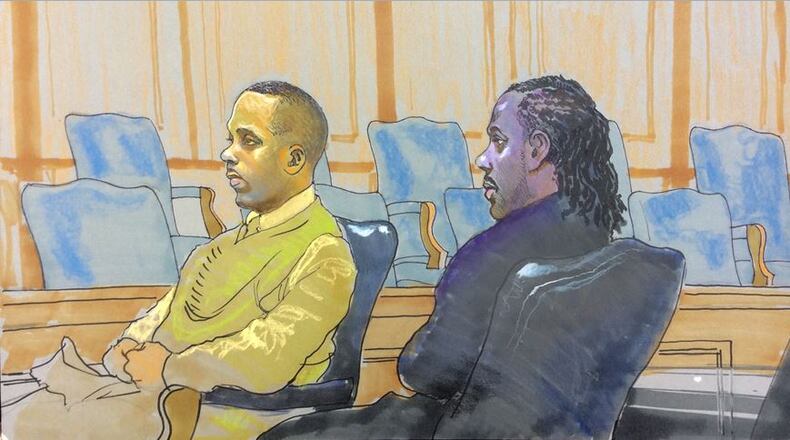A DNA swab is painless but two grocery warehouse workers contend it subjected them to taunts when it was used in an investigation to identify who was defecating in aisles between foodstuffs and on canned goods.
Jack Lowe and Dennis Reynolds were in federal court Wednesday in Atlanta, awaiting a jury’s decision on damages after winning a lawsuit against their East Point employer, Atlas Logistics Group Retail Services.
Lowe and Reynolds sued Atlas Logistics for illegally taking their DNA in a 2012 investigation to find the still-unidentified defecating culprit.
U.S. District Court Judge Amy Totenberg ruled in May that the company violated the Genetic Information Nondiscrimination Act, which says an employer may not “request … genetic information with respect to an employee.”
During opening arguments Wednesday, Amanda Farahany, a lawyer for the men, said they fear their DNA samples will be misused by health insurers or the company through genetic testing.
“DNA is who you are — it is your genetic make-up….,” Farahany told the jury. ”It gives employers information that could become the basis of discrimination against you and your children.”
Dion Kohler, however, a lawyer for Atlas Logistics, said the test results could not be used to discriminate regarding disease. Instead, he said, it was akin to the genetic fingerprint police use to eliminate or identify criminal suspects.
“You can’t tell if a person has a disease; you can’t tell if they are going to get a disease,” Kohler said.
Kohler noted the men — not management — told co-workers they were suspects in the excrement investigation of which they were cleared by the DNA test.
The company, which employs about 1,000 people in metro Atlanta, feared the problem risked its relationship with its sole client, Kroger, if the grocery retailer became concerned about public fears of food contamination, Kohler said. Atlas operates warehouses for the storage of products sold at a variety of grocery stores.
The company identified a handful of employees who might be responsible based on work schedules. It then sought legal advice and was told it could collect DNA legally from the suspects and have it tested against the physical evidence, Kohler said.
Lowe and Reynolds, members of the Teamsters, had their union steward present when a lab technician swabbed the inside of their mouths to collect the DNA sample, Kohler said.
The steward did not object to the test as long as it was voluntary, Kohler said. The two men said they feared for their jobs if they refused.
The jury of eight women, which was selected Wednesday, is being asked to decide if the men deserve financial compensation and whether company should suffer punitive damages for violating the law.
The testimony is expected to continue Thursday.
About the Author
The Latest
Featured


